Discover the Women of the Hall
These are the Inductees of the National Women’s Hall of Fame. Select any of the women to discover their stories and learn how they have influenced other women and this country.

Gloria Steinem
Feminist leader, writer and social activist. A founder of Ms. Magazine, Steinem also co-convened the National Women’s Political Caucus and helped create the Ms. Foundation for Women. A best-selling author, her latest works are Revolution from Within: A Book of Self Esteem for Women and Moving Beyond Words.
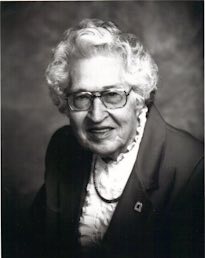
Helen Stephens
Athlete who set a world record and won two track and field gold medals at the 1936 Olympics. As an amateur, Stephens set Olympic, American and Canadian records in running, broad jump and discus. The small-town Missouri girl went on to become the first woman owner/manager of a women’s semiprofessional ball team and a lifetime sports advocate.
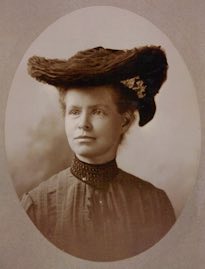
Nettie Stevens
Research biologist who identified that the “X” and “Y” chromosomes determined the sex of humans, ending scientific debate as to whether sex was determined by heredity or other factors. Stevens was a biology professor at Bryn Mawr College throughout her career.
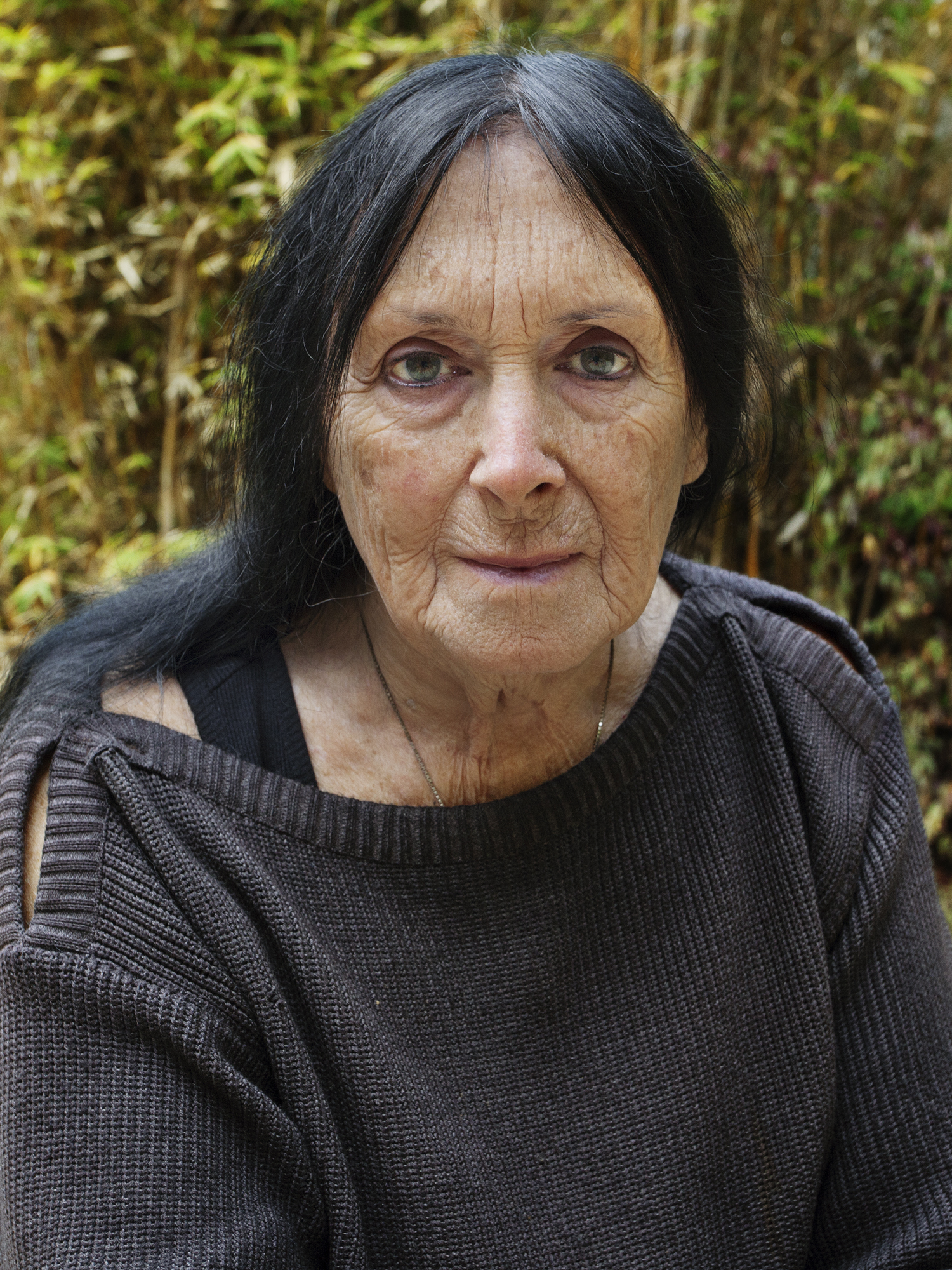
Allucquére Rosanne Stone
Allucquére Rosanne Stone, also known as Sandy Stone, is an academic, media theorist, artist, audio engineer, and computer programmer. A founder of the academic discipline of transgender studies, Stone’s trailblazing work created space for trans scholars to unfold the vast spectrum of gender.
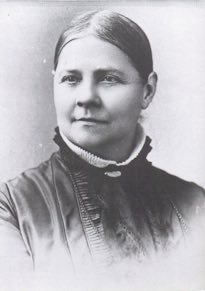
Lucy Stone
Early suffrage leader who began as an anti-slavery public advocate, followed by a lifetime of work for women’s right to vote. Stone was a sophisticated political tactician and founded The Women’s Journal, a fascinating archive of women’s history published from 1870 to 1893.
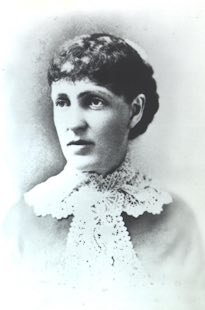
Kate Stoneman
Kate Stoneman was the first woman admitted to practice law in New York State. In 1885, she became the first female to pass the New York State Bar Exam, but her 1886 application to join the bar was rejected because of her gender. Stoneman immediately launched a lobbying campaign to amend the Code of Civil Procedure to permit the admission of qualified applicants without regard to sex or race, and was successfully admitted to the bar later the same month. In 1898, she became the first female graduate of Albany Law School, and was the first woman to receive a bachelor’s degree from any department of Union University.

Gloria Steinem
Feminist leader, writer and social activist. A founder of Ms. Magazine, Steinem also co-convened the National Women’s Political Caucus and helped create the Ms. Foundation for Women. A best-selling author, her latest works are Revolution from Within: A Book of Self Esteem for Women and Moving Beyond Words.

Helen Stephens
Athlete who set a world record and won two track and field gold medals at the 1936 Olympics. As an amateur, Stephens set Olympic, American and Canadian records in running, broad jump and discus. The small-town Missouri girl went on to become the first woman owner/manager of a women’s semiprofessional ball team and a lifetime sports advocate.

Nettie Stevens
Research biologist who identified that the “X” and “Y” chromosomes determined the sex of humans, ending scientific debate as to whether sex was determined by heredity or other factors. Stevens was a biology professor at Bryn Mawr College throughout her career.

Allucquére Rosanne Stone
Allucquére Rosanne Stone, also known as Sandy Stone, is an academic, media theorist, artist, audio engineer, and computer programmer. A founder of the academic discipline of transgender studies, Stone’s trailblazing work created space for trans scholars to unfold the vast spectrum of gender.

Lucy Stone
Early suffrage leader who began as an anti-slavery public advocate, followed by a lifetime of work for women’s right to vote. Stone was a sophisticated political tactician and founded The Women’s Journal, a fascinating archive of women’s history published from 1870 to 1893.

Kate Stoneman
Kate Stoneman was the first woman admitted to practice law in New York State. In 1885, she became the first female to pass the New York State Bar Exam, but her 1886 application to join the bar was rejected because of her gender. Stoneman immediately launched a lobbying campaign to amend the Code of Civil Procedure to permit the admission of qualified applicants without regard to sex or race, and was successfully admitted to the bar later the same month. In 1898, she became the first female graduate of Albany Law School, and was the first woman to receive a bachelor’s degree from any department of Union University.

Harriet Beecher Stowe
Author and daughter of a minister, Stowe became one of the first women to earn a living by writing, publishing the best-seller Uncle Tom’s Cabin in 1852. Although she wrote much more, her best-seller was often acclaimed as a major factor in the drive to abolish slavery.
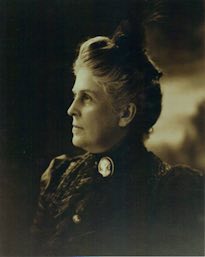
Harriet Williams Russell Strong
An inventor of water-conservation techniques, she was also a very successful businesswoman. Her water irrigation systems are credited with being one of the factors in the development of southern California as a major agricultural region.
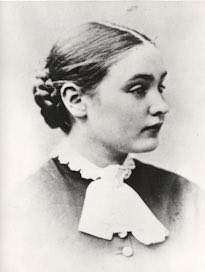
Anne Sullivan
Best known as the woman who taught Helen Keller to read, write and minimally speak, Anne Sullivan lost her own sight to trachoma at an early age. She went on to graduate from Perkins School for the Blind in Boston and eventually receive medical treatment that restored her sight. Both Sullivan and Keller became role models for thousands of physically challenged people around the world.

Kathrine Switzer
As the first woman to officially enter the Boston Marathon (1967), Kathrine Switzer broke the gender barrier and paved the way for women in running. Still recognized as a leader in the running world, Switzer has completed over thirty-seven marathons and has dedicated her career to creating opportunities and equal sport status for women. In 1977, she founded the Avon International Running Circuit, and in 1984, she was a leader in making the women’s marathon an official event in the Olympic Games. Switzer is an Emmy Award-winning television commentator who has broadcasted for ABC, CBS, NBC and ESPN.
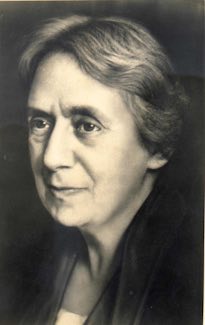
Henrietta Szold
The daughter of Hungarian immigrants, educator and social pioneer Henrietta Szold was an important figure in both American and Jewish history. In 1889, she opened a night school to educate immigrants in English and civics, creating a model for other night schools and immigrant education programs. Her groundbreaking work in the American Jewish community continued with her founding of Hadassah, the Women’s Zionist Organization of America, in 1912. Ms. Szold moved to pre-state Israel in 1920, continuing her work with the American Zionist Medical Unit, which she organized in 1918.
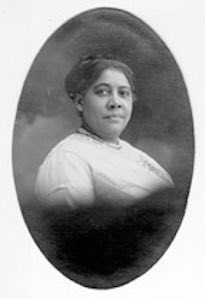
Mary Burnett Talbert
Civil Rights activist and suffragist, Talbert was the first African-American high school principal in the state of Arkansas. Moving to Buffalo in 1891, she went on to lecture internationally on race relations and women’s rights. In 1905, she helped found and organize the Niagara Movement, a forerunner of the NAACP.

Harriet Beecher Stowe
Author and daughter of a minister, Stowe became one of the first women to earn a living by writing, publishing the best-seller Uncle Tom’s Cabin in 1852. Although she wrote much more, her best-seller was often acclaimed as a major factor in the drive to abolish slavery.

Harriet Williams Russell Strong
An inventor of water-conservation techniques, she was also a very successful businesswoman. Her water irrigation systems are credited with being one of the factors in the development of southern California as a major agricultural region.

Anne Sullivan
Best known as the woman who taught Helen Keller to read, write and minimally speak, Anne Sullivan lost her own sight to trachoma at an early age. She went on to graduate from Perkins School for the Blind in Boston and eventually receive medical treatment that restored her sight. Both Sullivan and Keller became role models for thousands of physically challenged people around the world.

Kathrine Switzer
As the first woman to officially enter the Boston Marathon (1967), Kathrine Switzer broke the gender barrier and paved the way for women in running. Still recognized as a leader in the running world, Switzer has completed over thirty-seven marathons and has dedicated her career to creating opportunities and equal sport status for women. In 1977, she founded the Avon International Running Circuit, and in 1984, she was a leader in making the women’s marathon an official event in the Olympic Games. Switzer is an Emmy Award-winning television commentator who has broadcasted for ABC, CBS, NBC and ESPN.

Henrietta Szold
The daughter of Hungarian immigrants, educator and social pioneer Henrietta Szold was an important figure in both American and Jewish history. In 1889, she opened a night school to educate immigrants in English and civics, creating a model for other night schools and immigrant education programs. Her groundbreaking work in the American Jewish community continued with her founding of Hadassah, the Women’s Zionist Organization of America, in 1912. Ms. Szold moved to pre-state Israel in 1920, continuing her work with the American Zionist Medical Unit, which she organized in 1918.

Mary Burnett Talbert
Civil Rights activist and suffragist, Talbert was the first African-American high school principal in the state of Arkansas. Moving to Buffalo in 1891, she went on to lecture internationally on race relations and women’s rights. In 1905, she helped found and organize the Niagara Movement, a forerunner of the NAACP.
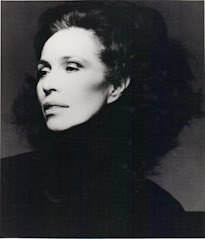
Maria Tallchief
Prima ballerina with the New York City Ballet and artistic director for the Lyric Opera Ballet in Chicago. Tallchief created a distinctive style and interpretation which continues to influence contemporary ballet. She used her international acclaim to bring about greater understanding and appreciation of Native Americans.

Ida Tarbell
Writer and editor, her expose of the Standard Oil Trust in the 1904 publication The History of the Standard Oil Company prompted the federal government to prosecute and break up Standard Oil for anti-trust violations. She founded the American Magazin, authored several biographies, and, in spite of her 1912 anti-feminist book, The Business of Being a Woman, remains a role model for women and men in journalism.
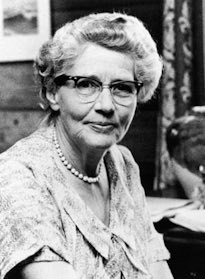
Helen Brooke Taussig
As Chief of the heart clinic at Johns Hopkins School of Medicine, she developed a pioneering operation in 1944 which solved the often fatal “blue baby” (children born with an anatomical heart defect) problem, saving countless infants.
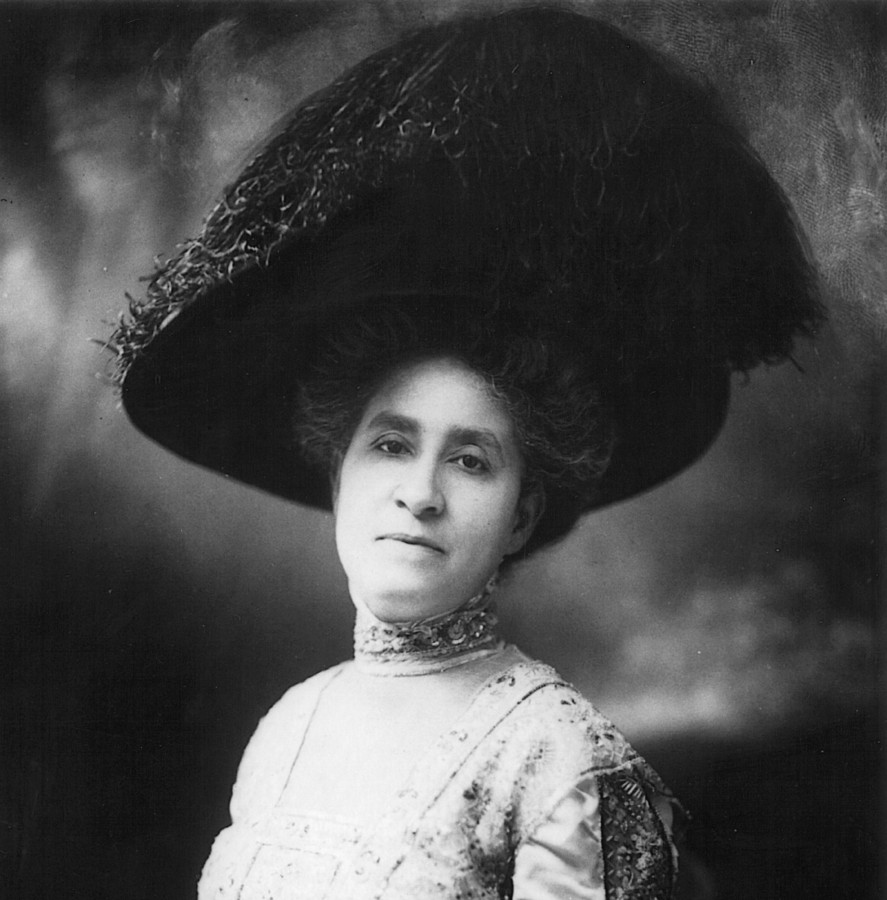
Mary Church Terrell
One of the most prominent activists of her era with a career that spanned well into the civil rights movements of the1950’s. Terrell believed in racial uplift and equal opportunity, actively campaigning for women’s and Black women’s suffrage.
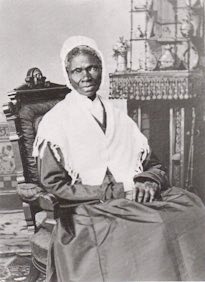
Sojourner Truth
Abolitionist born a slave who became a Quaker missionary. Truth eventually became a traveling preacher of great influence who worked in the antislavery movement. She learned about women’s rights, and adopted that cause as well. She went on to counsel and help newly freed African Americans.
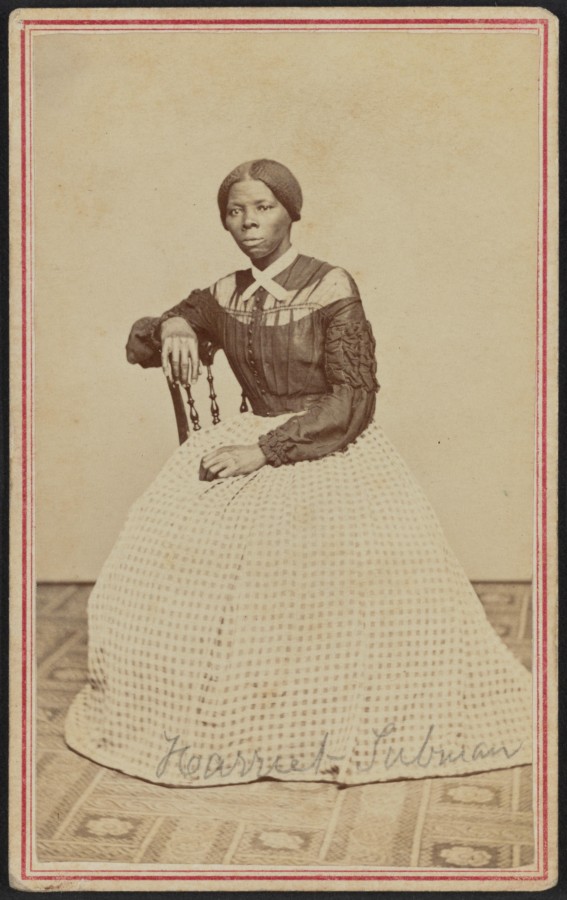
Harriet Tubman
Abolitionist born a slave in Maryland. Fleeing north to freedom, Tubman joined the Underground Railroad as a “conductor” who led people through the lines to freedom. Credited with saving more that 300 people from slavery, she became known as “Moses.” During the Civil War, Tubman organized former slaves into scouts and spy patrols, and after the war worked to help needy African Americans.

Maria Tallchief
Prima ballerina with the New York City Ballet and artistic director for the Lyric Opera Ballet in Chicago. Tallchief created a distinctive style and interpretation which continues to influence contemporary ballet. She used her international acclaim to bring about greater understanding and appreciation of Native Americans.

Ida Tarbell
Writer and editor, her expose of the Standard Oil Trust in the 1904 publication The History of the Standard Oil Company prompted the federal government to prosecute and break up Standard Oil for anti-trust violations. She founded the American Magazin, authored several biographies, and, in spite of her 1912 anti-feminist book, The Business of Being a Woman, remains a role model for women and men in journalism.

Helen Brooke Taussig
As Chief of the heart clinic at Johns Hopkins School of Medicine, she developed a pioneering operation in 1944 which solved the often fatal “blue baby” (children born with an anatomical heart defect) problem, saving countless infants.

Mary Church Terrell
One of the most prominent activists of her era with a career that spanned well into the civil rights movements of the1950’s. Terrell believed in racial uplift and equal opportunity, actively campaigning for women’s and Black women’s suffrage.

Sojourner Truth
Abolitionist born a slave who became a Quaker missionary. Truth eventually became a traveling preacher of great influence who worked in the antislavery movement. She learned about women’s rights, and adopted that cause as well. She went on to counsel and help newly freed African Americans.

Harriet Tubman
Abolitionist born a slave in Maryland. Fleeing north to freedom, Tubman joined the Underground Railroad as a “conductor” who led people through the lines to freedom. Credited with saving more that 300 people from slavery, she became known as “Moses.” During the Civil War, Tubman organized former slaves into scouts and spy patrols, and after the war worked to help needy African Americans.
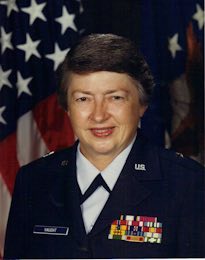
Wilma L. Vaught
One of the most decorated military women in U.S. history, Brigadier General Vaught, USAF, Retired, broke through many gender barriers to achieve a series of “firsts” that paved the way for military women serving today. She may be best known and most revered for her 12-year quest to permanently honor women in the military, raising over $45 million to build a major national memorial. The stunning 33,000 sq. ft. Women in Military Service for America Memorial facility and education center stands today at the gateway to Arlington National Cemetery.
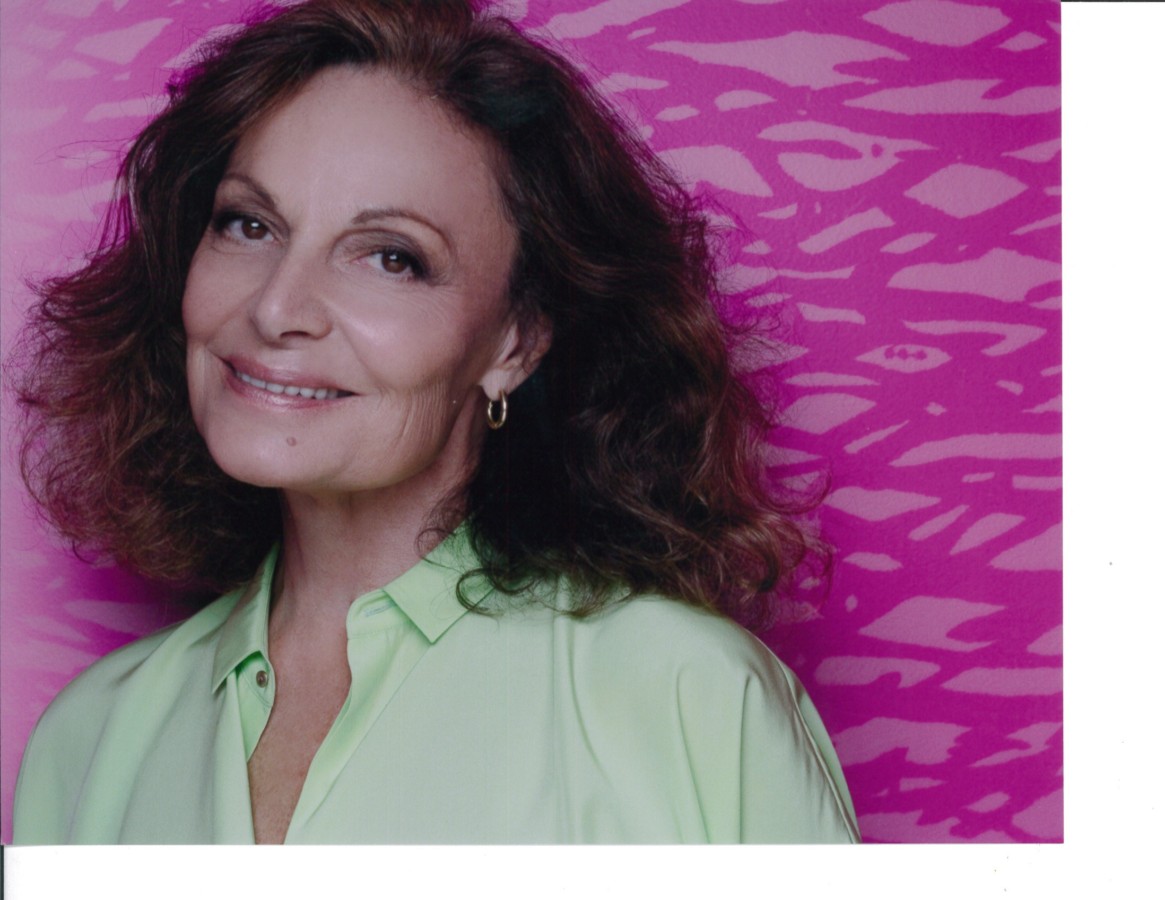
Diane von Furstenberg
Diane von Furstenberg is a fashion designer, philanthropist, and Founder and Chairman of the company that bears her name. In 1974, she debuted her iconic wrap dress, which became a symbol of power and independence for women all over the world and grew into a global brand. She acted as President of the CFDA from 2006 to 2015, and served as its Chairwoman from 2015 to 2019. In 2010, she established the DVF Awards to honor extraordinary women. Her memoir, The Woman I Wanted To Be, was published in 2014 and has been translated into six languages. In 2015, she was named one of TIME’s 100 Most Influential People. In 2018, she received the CFDA Swarovski Award for Positive Change. She currently serves on the boards of CFDA, Vital Voices, the Statue of Liberty–Ellis Island Foundation, The Shed, and the Academy Museum of Motion Pictures.
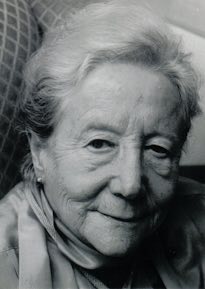
Florence Wald
Former dean of the Yale School of Nursing and founder of the Hospice movement in America, for which she was awarded the honorary Doctorate of Medical Sciences by Yale University in 1995. As a nurse, she went to Europe to study Hospice from the ground up.
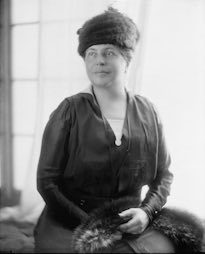
Lillian Wald
Nurse who organized the public health nursing service and the Henry Street Settlement in New York City to meet the needs of the urban poor. Wald created public health nursing services for many groups, and established the Public Health Nurses, known today as Visiting Nurse Service.
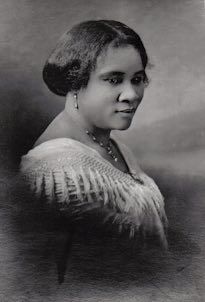
Madam C. J. Walker
Sara Breedlove, a Black entrepreneur considered the first African American woman to become a millionaire. She did this by devising a hair care and grooming system for African Americans and pioneered a door-to-door sales approach. The daughter of former slaves, Walker became an advocate for positive social change as well as a philanthropist.
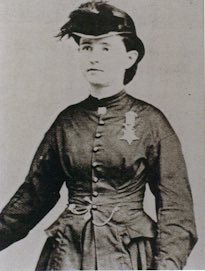
Mary Edwards Walker
First female surgeon in the U.S. Army, she continually crossed the Confederate lines to treat civilians. After being taken prisoner in 1864 and imprisoned in Richmond, she was awarded the Congressional Medal of Honor, the first woman to receive this award. In 1917, her medal, along with 910 others, was taken away when Congress revised the standards to include only “actual combat with the enemy.” She refused to return the medal, wore it until her death, and it was finally awarded to her posthumously.

Wilma L. Vaught
One of the most decorated military women in U.S. history, Brigadier General Vaught, USAF, Retired, broke through many gender barriers to achieve a series of “firsts” that paved the way for military women serving today. She may be best known and most revered for her 12-year quest to permanently honor women in the military, raising over $45 million to build a major national memorial. The stunning 33,000 sq. ft. Women in Military Service for America Memorial facility and education center stands today at the gateway to Arlington National Cemetery.

Diane von Furstenberg
Diane von Furstenberg is a fashion designer, philanthropist, and Founder and Chairman of the company that bears her name. In 1974, she debuted her iconic wrap dress, which became a symbol of power and independence for women all over the world and grew into a global brand. She acted as President of the CFDA from 2006 to 2015, and served as its Chairwoman from 2015 to 2019. In 2010, she established the DVF Awards to honor extraordinary women. Her memoir, The Woman I Wanted To Be, was published in 2014 and has been translated into six languages. In 2015, she was named one of TIME’s 100 Most Influential People. In 2018, she received the CFDA Swarovski Award for Positive Change. She currently serves on the boards of CFDA, Vital Voices, the Statue of Liberty–Ellis Island Foundation, The Shed, and the Academy Museum of Motion Pictures.

Florence Wald
Former dean of the Yale School of Nursing and founder of the Hospice movement in America, for which she was awarded the honorary Doctorate of Medical Sciences by Yale University in 1995. As a nurse, she went to Europe to study Hospice from the ground up.

Lillian Wald
Nurse who organized the public health nursing service and the Henry Street Settlement in New York City to meet the needs of the urban poor. Wald created public health nursing services for many groups, and established the Public Health Nurses, known today as Visiting Nurse Service.

Madam C. J. Walker
Sara Breedlove, a Black entrepreneur considered the first African American woman to become a millionaire. She did this by devising a hair care and grooming system for African Americans and pioneered a door-to-door sales approach. The daughter of former slaves, Walker became an advocate for positive social change as well as a philanthropist.

Mary Edwards Walker
First female surgeon in the U.S. Army, she continually crossed the Confederate lines to treat civilians. After being taken prisoner in 1864 and imprisoned in Richmond, she was awarded the Congressional Medal of Honor, the first woman to receive this award. In 1917, her medal, along with 910 others, was taken away when Congress revised the standards to include only “actual combat with the enemy.” She refused to return the medal, wore it until her death, and it was finally awarded to her posthumously.
